Extracellular Vesicles
Learn more about Extracellular Vesicles (EV) Products and what 2BScientific Limited has to offer
| EVs were first observed as small particles that shed from cells into the blood plasma and were called platelet dusts. However, in the later part of 2000, these membranes bound particles were observed to play a key role as mediators of intracellular communication, due to their transportation capability of carrying bounded nucleic acids across cells. |
Currently, researchers believe that as cell mediators, EVs can help become great drug delivery tools, with more research studies focusing on EVs as biomarkers and therapeutic agents especially for cancer immunotherapy.
In the field of biomedical research, the emergence of Extracellular Vesicles is becoming pivotal focus for potential applications in diagnostics and therapeutics of different disease states.
Despite the exciting potential of EVs, several challenges that currently remain are:
- Isolation and Purification: One of the primary challenges is the efficient and consistent isolation of EVs from biological fluids. These methods can be time-consuming and may not yield pure EV populations, complicating downstream analyses.
- Characterisation: Accurately characterising EVs in terms of size, composition, and origin is complex. Advanced techniques like nanoparticle tracking analysis and mass spectrometry are required, but these are not always accessible or standardised across laboratories.
- Functional Studies: Understanding the precise biological functions of EVs in different contexts remains a significant hurdle. This includes deciphering the cargo they carry and how it influences recipient cells.
- Clinical Translation: Moving from bench to bedside is challenging. Ensuring the safety, efficacy, and scalability of EV-based therapies requires rigorous testing and regulatory approval.
2BScientific Limited with the help of its suppliers can decipher some of these challenges by providing a broad range of tools and kits that can enhance EV research findings. Our suppliers can offer a range of EV products and services which are as follows:
- To attain ready-to-use purified Exosomes our suppliers can provide Lyophilised Exosomes from a variety of biological sources, plants and from Mesenchymal Stem Cells (MSC).
- For studying functional properties, we have a range of Fluorescently labelled Extracellular Vesicles with fluorescent protein EGFP (green) BFP (blue) or mCherry (Red) as fusion protein with tetraspanins CD9, CD81 and CD63.
- For pure EV isolation and purification our suppliers have size exclusion chromatography (SEC) columns, Ion Exchange Chromatography membranes, Tangential flow filtration (TFF), magnetic Immunobeads (EV-IBeads), ELISA immunoplates (EV-IPlates) for the isolation of highly pure and specific EVs from biofluids and culture mediums.
- To enhance and improve enrichment of EV we have EV spinners that can be used during the isolation and purification stages to improve EV quantification, including buffers for detachment of EVs from columns.
- For EV quantification and characterisation, we have kits that can be used by ELISA or FACS application, also we have monoclonal and polyclonal antibodies for EV identification and disease- specific (cancer and neurodegenerative diseases) EV markers.
- Isolation of cell mediators like high-quality total RNA (miRNA and mRNAs)/ DNA from the overall or from tumour-specific EV subpopulation, and of circulating and EV-associated genomic DNA
- For Biomarker discovery and confirmation studies our suppliers have EV isolation kits for complex biofluids including kits for purification of Tumour originated nucleic acids from Tumour sourced exosomes.
EV Content
To know more about EV content, look through our range of EV information materials available below:
Hansa BioMed Life Sciences
Hansa Bio Med significantly contributes towards the field of exosome and extracellular vesicle sciences across the global research community by offering new and improved EV kits, and range of tools (filters, beads, columns) to isolate and purify small and large EVS, characterise and enrich EVs as well as offer purified EVs both human and cell derived.
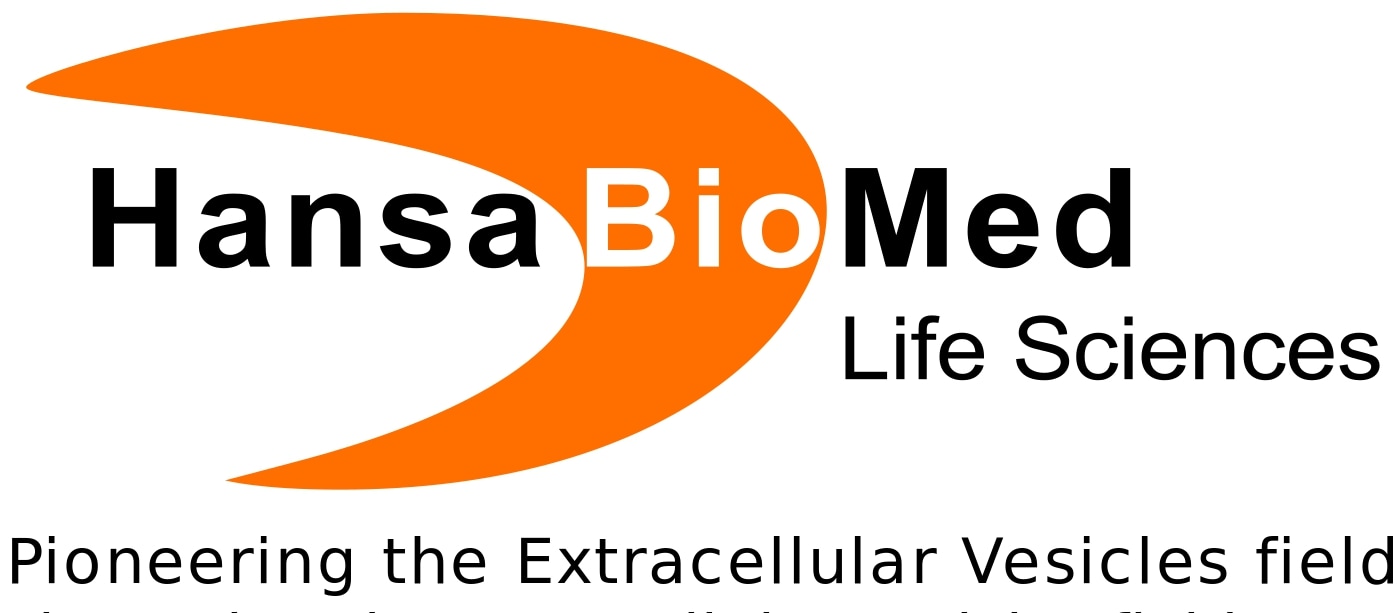
Cosmo Bio Ltd
Cosmo Bio is a leading Japanese manufacturer of Life Science research and development products. By maximizing their product capability, they can provide researchers with hard-to-find reagents that will impact future research outcome.
Cosmo Bio has identified the importance of Exosome in research developments and have provided a range of high-quality EV characterisation products for RUO purposes that includes:
Exosome Isolation kit using spin column methods
CD9/CD63 Exosome Elisa Kit – quantify exosomes in biofluids and cell culture supernatants
Range of exosome antibody markers as Elisa Kits for CD81, CD9, CD63, or as monoclonal conjugated antibodies for exosome characterisation
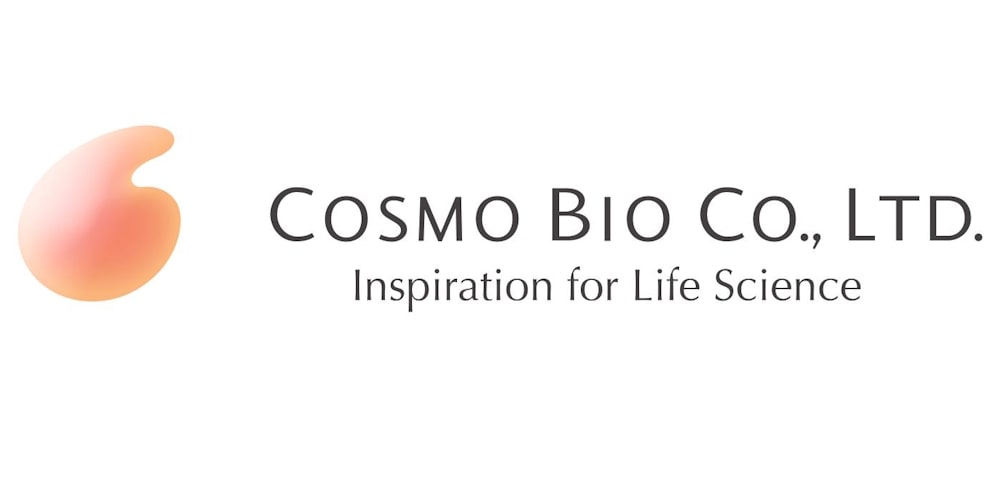
Echelon Biosciences
Echelon Biosciences a biotechnology company are specialised in producing high-quality reagents and assays that are essential for the study of phospholipids, fatty acids, and glycerols.
Echelon Biosciences offers the ExoClean and Exotracker kits.
ExoClean – offers analysis of the size and integrity of EVs isolated
ExoTracker- offers labelling of membrane/RNA and purifying in <2hrs
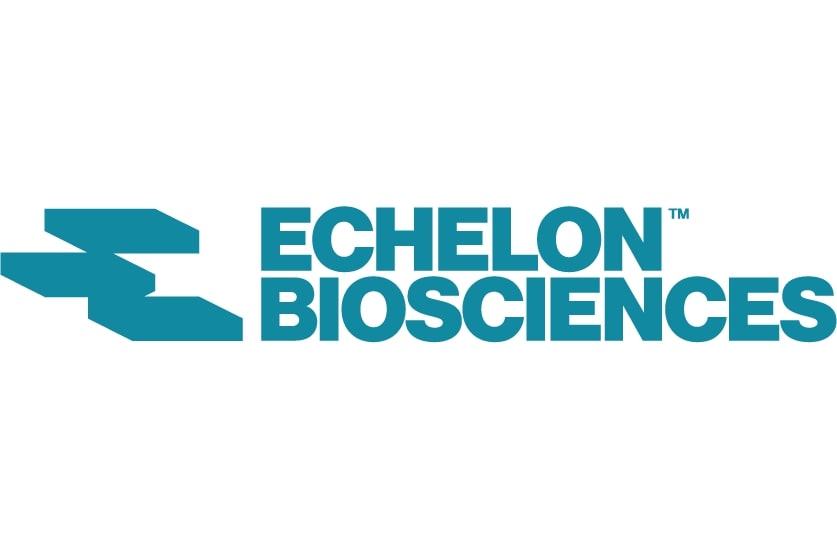
Immunostep
Immunostep a Spanish Biotech company develops products that contribute to improving diagnostics and clinical research developments. They are known for their range of products required in Flow cytometry application.
Immunostep offers:
ExoElisaStep Kit detection platform – helps quantify exosomes by ELISA
Exosome isolation tools like – Exosome Isolation Columns, Exosome Capture Antibodies Markers for Human and Mouse
Lyophilized Exosome Standards from human biofluids and cell culture mediums
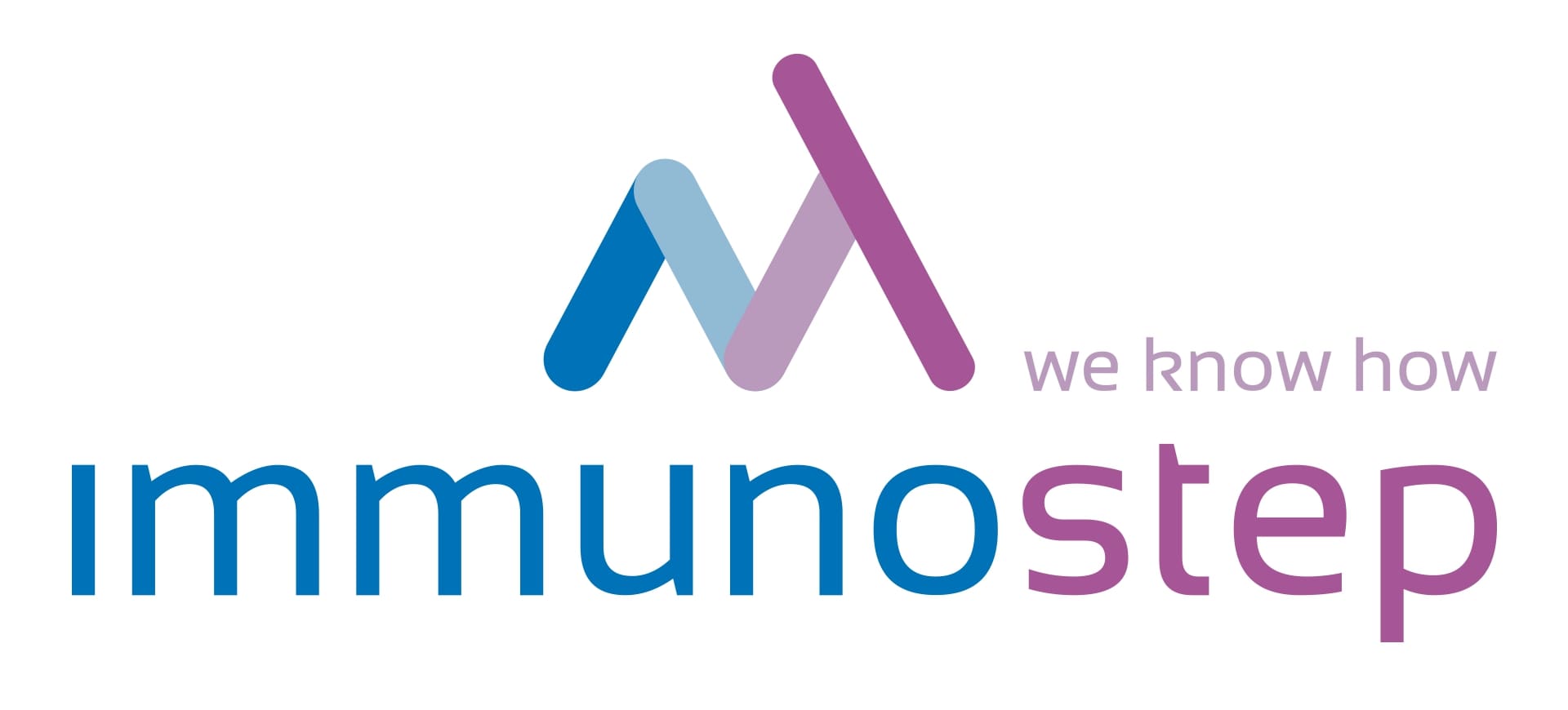
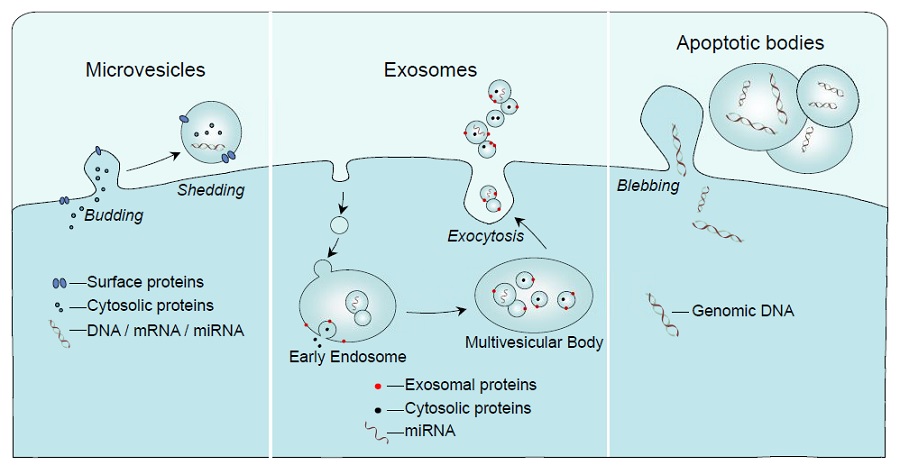 Table1 and Figure 1:
Table1 and Figure 1: 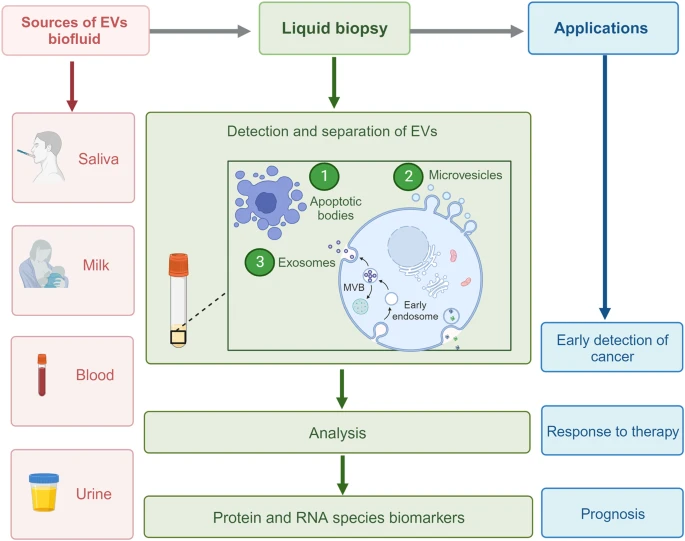
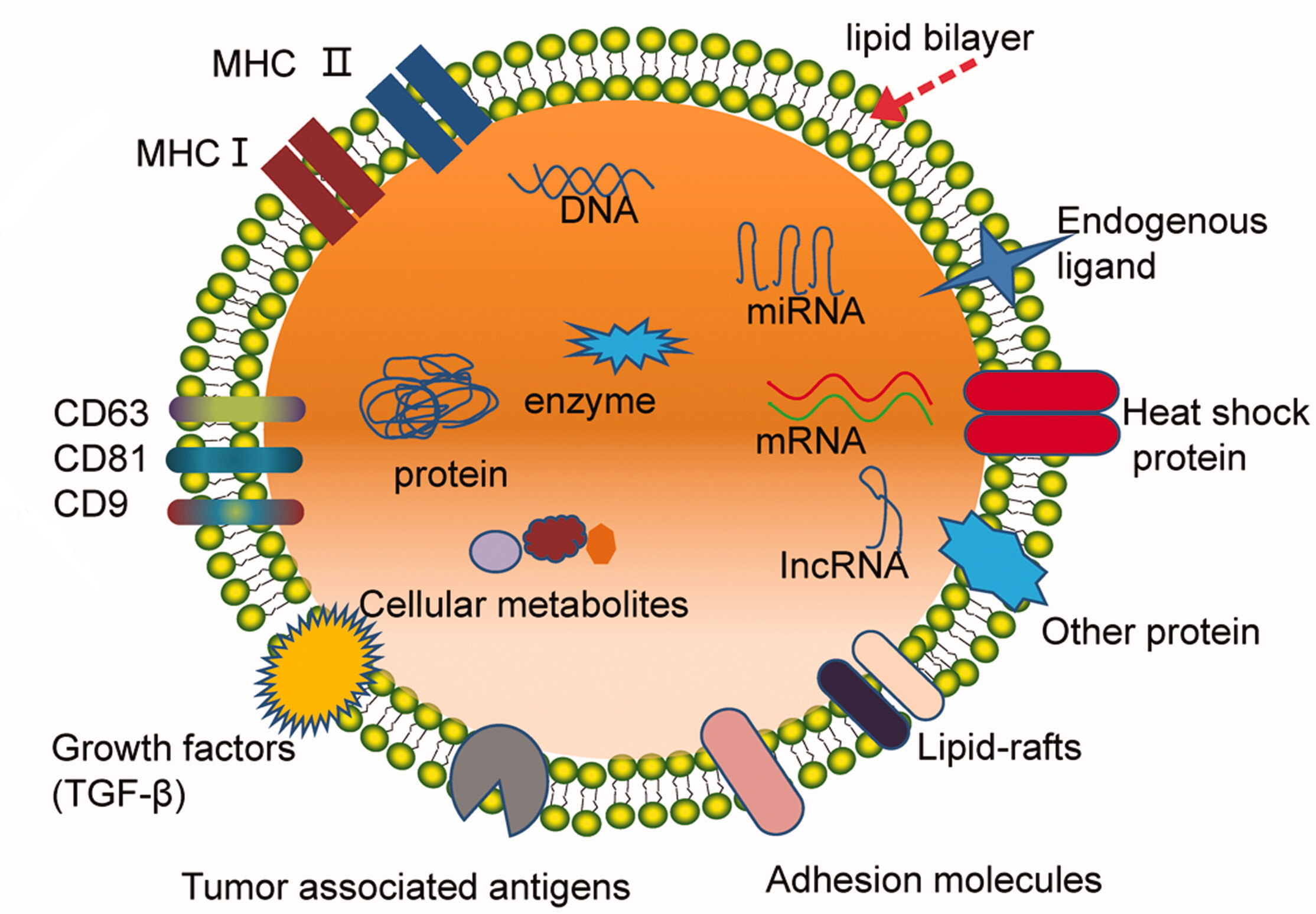 Figure 3: Key Components of Extracellular Vesicles contain a range of nucleic acids, miRNA, and surface markers for EV distinction where larger EVs carrying more DNA, CD9, or Annexin A1, while smaller EVs are enriched with CD63 and CD81 [5]
Figure 3: Key Components of Extracellular Vesicles contain a range of nucleic acids, miRNA, and surface markers for EV distinction where larger EVs carrying more DNA, CD9, or Annexin A1, while smaller EVs are enriched with CD63 and CD81 [5]